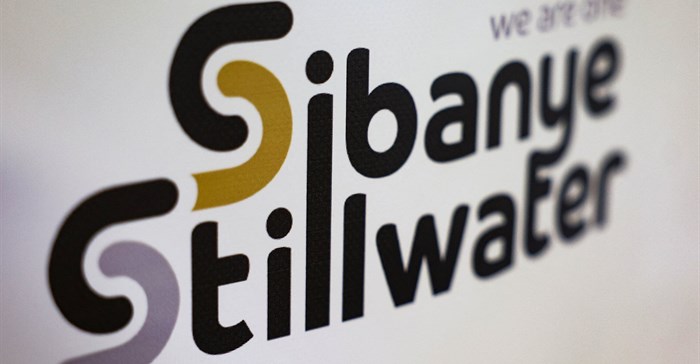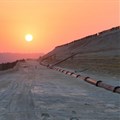Sibanye-Stillwater said it may look to raise about $500m through prepayment arrangements such as so-called metals streaming to shore up its cash position, even as the company sees an improvement in metal prices and the market outlook. Metals streaming involves selling future metals production in return for an upfront cash payment.

A logo of Sibanye Stillwater is seen at a mine in Marikana, outside Rustenburg. Source: Reuters/Siphiwe Sibeko
"We are testing the market, we're not hell bent on raising it ... but if we do it, it needs to be around $500 million," CEO Neal Froneman said in an interview on the sidelines of a platinum mining conference in Johannesburg.
While Sibanye is not facing any risk of running out of money as metal prices continue to improve, it is "prudent" for the company to build sufficient liquidity buffers, he said. He ruled out issuing equity to raise the money.
The Johannesburg-based precious metals producer saw profits tumble $2bn last year due to lower metal prices and after the producer reported $2.6bn of impairments at its US palladium mines, a nickel operation in France and a gold mine in South Africa.
The company, which has grown from a South African gold and platinum miner to a diversified producer with operations in Australia, Europe and the United States, is starting to see the benefits of restructuring at its South African platinum and gold mines where it has cut some jobs, Froneman said.
Market improvement
"The environment has improved dramatically from when we presented our results," Froneman said. "Our focus will remain on the balance sheet. We just need to be careful and prudent."
Sibanye's balance sheet is likely to come under "greater pressure" this year earlier than its platinum group metals (PGM) producing peers, RMB Morgan Stanley analysts said in a note.
They forecast a negative free cash flow of R8.5bn for the company this year, with its net debt to core earnings (EBITDA) ratio peaking at 1.7 times.
While Sibanye's debt is expected to rise, it will stay well within the level of its borrowing agreements, Froneman said.
South African PGM producers have resorted to cutting jobs and restructuring operations to cope with lower prices of the metals used in vehicle autocatalysts to help curb toxic emissions.






























